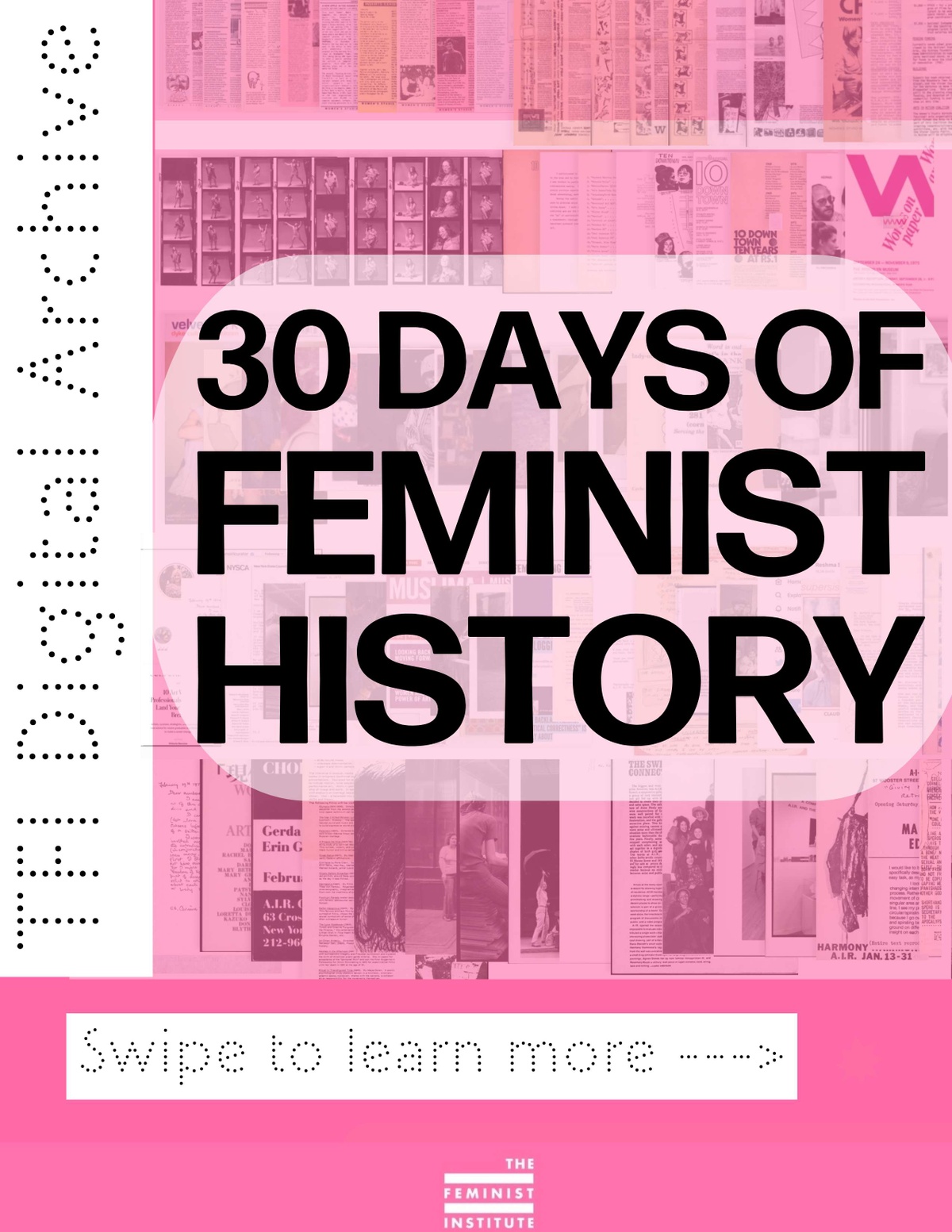Project Feature: Addresses Project, Part 2
Allison Elliott Sep 1, 2022 5 Minute Read
Welcome to Part Two of our Project Feature on Addresses Project! We hope you enjoyed learning more about the inspiration behind this project and Cassandra Grant’s portrait, oral history and ephemera.
This week, we are featuring four additional people from Addresses Project: Red Robinson, Michela Griffo, Sharee Nash and Wanda Acosta, along with their oral histories and selected ephemera from each woman’s life and work. Each woman featured has shifted the queer and lesbian sociopolitical landscape in a major and unique way through demonstrating, organizing, creating nightlife, and space for safer sex and kink practices – showing the varied queer ecosystem in which we exist.
Red Robinson

Red Robinson is a kink personality, BDSM consultant and founder of Throb and SPAM parties as well as Submit (Brooklyn’s BDSM and sex party for women and trans Folks). Over the last twenty years, Red has taught BDSM and sex education classes both privately and professionally at Smith College, Black Rose, TES Fest, Lesbian Sex Mafia, IMSL, F.I.S.T. and Michigan Womyn’s Music Festival among others. For the past eight years she has been a coordinator for the International Ms. Leather conference, the world’s largest organization for leather women and their allies. Red is a pioneering activist, community leader and mentor. She has created and held space for safe sex and kink practices against many-an-obstacle.
Oral History

Ephemera

Michela Griffo

Michela Griffo is an artist and activist and came of age on the piers and streets of New York City in the 1950s and ‘60s. She was as an early member of the Redstockings and a founding member of Radicalesbians, Lavender Menace and the Gay Liberation Front. She was active in the Civil Rights, Women’s Rights and Gay Rights Movements, working closely with activists such as Yoruba Guzman and radical organizations such as The Young Lords. Michela risked her life with other queer and lesbian activists on the front lines of the Gay Rights Movement paving the way for younger generations to come out and live safe and productive lives. In her visual art practice Michela explores themes such as the queer and lesbian woman’s voice and desire as well as childhood trauma and addiction.
Oral History

Ephemera

Sharee Nash

Sharee Nash is a writer, deejay, and co-founder of iconic parties for queer women and lesbians including Sundays at Café Tabac and Mondays at Bar d’O in the 1990s and early 2000s with fellow nightlife icon Wanda Acosta. Sharee’s extensive knowledge of and passion for music has led her around the globe in search of sounds unheard of in New York City. Her work in nightlife with Wanda ushered in a massive shift in lesbian culture out from the hidden, mafia-owned dive bars into visible and glamorous spaces. Parties such as Sundays at Café Tabac enabled queer women to see one another and to see themselves with respect and adoration.
Oral History

Ephemera

Wanda Acosta

Wanda Acosta is simply a nightlife icon. She is the creator of parties including Indulgence at Casa La Femme, No Day Like Sunday at Café Tabac, Pleasure at Bar d'O, Kitty Glitter at Liquids, Skin-Tight at Tribal Lounge, Circa at Trompe L'Oeil, YuMMY at Cafe Melville, Soho Groove at Sticky! Puta Scandalosa at Mother, Starlette Sunday at Starlight, AVA at Clubhouse and Showstopper at BLVD. She owned lesbian bars including WonderBar, Starlight and Clubhouse which were open the late 1990s and early 2000s. Her work in nightlife ushered in a massive shift in lesbian culture out from the hidden, mafia-owned dive bars into visible and glamorous spaces. Parties such as Sundays at Café Tabac enabled queer women to see one another and to see themselves with respect and adoration.
Oral History

Ephemera

Conclusion
Even by looking at only a snippet of the Addresses Project, it’s clear the kind of multi-faceted queer life created by people connecting with others in their community and making space where there wasn’t any. The use of oral history and ephemera harnesses the power of primary sources to amend a cultural record that often deliberately omits contributions queer people have made to culture. Here at TFI, our work is rooted in highlighting feminist contributions to culture, and Addresses Project does just that. To see all portraits, oral histories, and maps, visit: https://addressesproject.com/.
All portraits are copyrighted to © Riya Lerner, The Addresses Project, 2022. This work is licensed under a CC BY-NC-ND 4.0 license. All text is copyrighted to © Gwen Shockey, The Addresses Project, 2022. This work is licensed under a CC BY-NC-ND 4.0 license. All ephemera is copyrighted to © The Addresses Project, 2022. This work is licensed under a CC BY-NC-ND 4.0 license. This material was shared with The Addresses Project by the person who is being featured, and if anyone has a copyright claim, they can contact info@thefeministinstitute.org.
This blog post is also available on our Substack.

